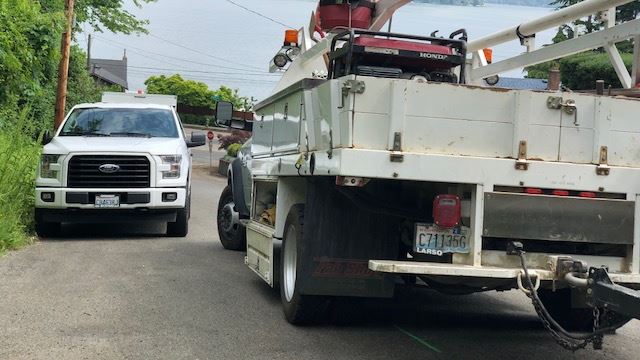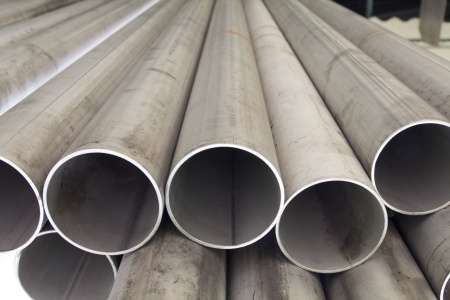Seattle Area Water Main Blowout
Is Your Water Main Due for a Blow Out? Seattle’s Aging Pipes Going Bad Fast
America’s water delivery infrastructure has aged to the point of near collapse. Across the US, at least 240,000 water mains go bad every year according to a recent EPA study. Water mains at the street are the problem of the city – but water lines that run from the street to your home are your responsibility as are all the pipes and fittings in your yard and home.

The older your home, the more likely you will have a major water line blow out on your property. We wrote recently about warning signs of water line problems and these should not be ignored. You should also know that the older your home, the more likely your water line will go bad unless it has been replaced since the original pipes were installed.
Pipe materials matter
Most pipe materials will last for several decades, but if your home is much older, they may have outlived their life expectancy and be ripe for a leak or full-on blow out. Here’s a quick look at lifespan based on pipe materials:
Used for supply pipes that bring water into the house
- Brass – 40 to 70-year lifespan
- Copper – 50 years or greater lifespan
- Galvanized Steel – 20 to 50-year lifespan
- Clay – A few years up to 100-year lifespan
- Used for drain lines leaving the house:
- Cast Iron – 75 to 100-year lifespan
- PVC – Indefinite lifespan

How old are your pipes?
Most homes built in the mid-50s and prior in the Seattle area were fitted with galvanized piping but post-1950s, other materials were preferred. If your home was built in the mid-1950s or prior, you should check out the history of your home to find out if your water lines were ever replaced. You can usually see some of your pipes just outside your home, in your basement, or a crawl space under your home.
Also realize that you may have more than one type of pipes in your home – most homes were built with at least two types of pipe materials – one for water coming into the house and one or more for drains leading out of your home. If your home has gone through renovations and repairs, different types of pipe may have been added. For a home 40 years old or more, you likely have four or more types of pipes.
Each of these may have been installed or replaced at different times so you may have a variety of life expectancies for your water lines counting down simultaneously. Check under your sinks and near your hot water heater to get an idea of materials used and the shape they are in – check for rust, corrosion, and leaks. Galvanized pipe, for instance, corrodes both inside and out.
Quality installation and maintenance is key to water line longevity
What also makes a major difference in the lifespan of your water lines is how well they were installed and how they’re maintained. Clay can be extremely durable but if improperly installed, can break down within just a few years. Failure to maintain pipes, cut back hedges and trees that could send roots into your pipes, and ignoring warning signs of trouble can lead to major problems.
When you have a water line problem, you may need a total replacement or a repair may suffice. But the key is to use a qualified and experienced service provider to do the work. Complete Trenchless accepts water line repair and replacement projects in Seattle, Tacoma, Bellingham and the surrounding area. Our trenchless technology saves you time, money, and minimizes disruption to your lawn and life.
Call us at 206.259.0415 in Seattle for a free estimate on your water, sewer or drain line problems. Don’t let a little leak turn into a big disaster. Call now!










